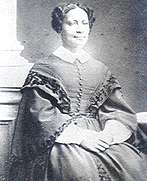Abolitionists
A powerful orator and fierce warrior for Black civil rights, Sarah Parker Remond lectured against slavery in both America and Britain. At a time when women were not expected to speak in public – let alone Black women – she defied stereotypes and urged her audiences to campaign for abolition.
She has a clear and musical voice, a distinct utterance, and if it be not a needless remark of a lady we may add she has at her command a great flow of language, for she speaks without any assistance from notes, and is never at a loss for words admirably calculated to express her sentiments.
Born free in 1815, Remond was the sister of fellow abolitionist Charles Lenox Remond. The family were friends with William Lloyd Garrison and Wendell Phillips, and her father was a life-long member of the Massachusetts Anti-Slavery Society.
A century before Rosa Parks, Remond refused to move to a segregated seat in a local Salem theatre. She was physically assaulted and pushed down the stairs; but successfully sued the company for damages.
 Sarah P. Remond (Wikipedia)
Sarah P. Remond (Wikipedia)
Remond was a well-known speaker and travelled to Liverpool in 1858 to campaign against American slavery. Her lecturing tour was incredibly popular in England, and hundreds of people came to hear her speak. Remond described the sexual abuse Black women faced in slavery, a taboo subject on the Victorian stage, and urged Britain to denounce the Confederacy when the Civil War began.
After the war, Remond trained as a physician and moved to Italy to practice. She died in Florence in 1894, and is buried in Rome.
She retained throughout the closest attention of her audience as she so eloquently depicted the wrongs of the slave, dwelt in the most touching manner upon the social degradation of her sisters in slavery, expressed her unbounded indignation at the apathy which the professing Christians throughout the whole of the US as a body manifested on the subject and concluded with an earnest appeal for the moral and religious sympathy and influence of free England in the abolition movement.